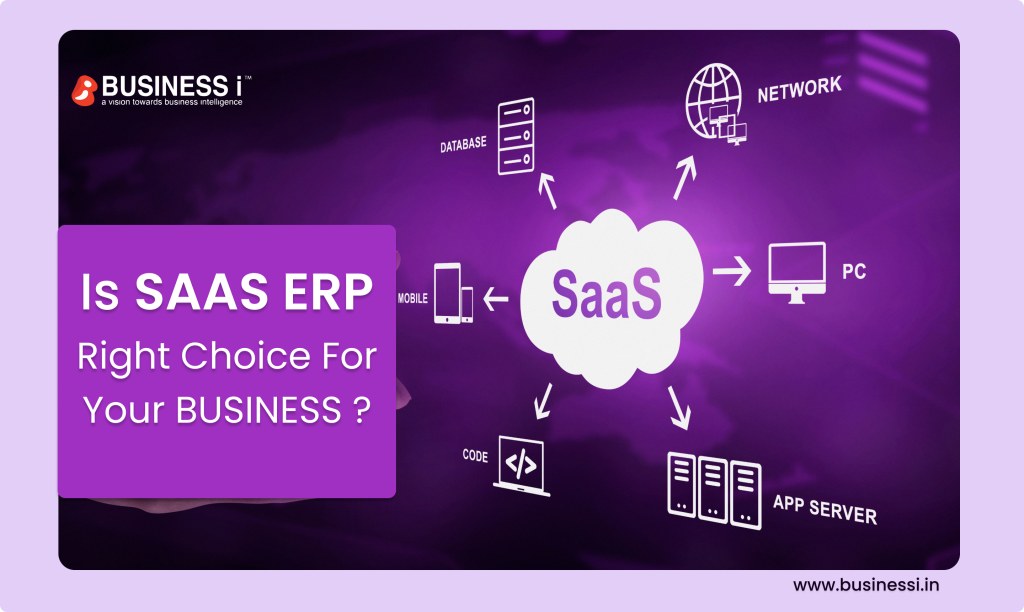Is SaaS ERP the Right Choice for your Business?
What is SaaS ERP?
SaaS ERP is a category of cloud-based enterprise resource planning software that is offered by subscription, is provided as a service over the internet, and runs on the servers of the vendor or cloud provider.
The majority of software as service (SaaS) ERP systems have a multi-tenant SaaS design, which allows several users to share the same instance, or copy, of the software, underlying infrastructure, and database while keeping the data of each tenant separately and securely. All users receive updates at once, and the vendor decides how often the software is updated, which is typically every three months. The software’s features are universally standardized and often cannot be easily changed.
SaaS ERP may also be provided in single-tenant mode, in which each client receives a unique instance of the software and database and usually has some control over modifications and upgrades. To adhere to their privacy policies or to comply with governmental rules on data privacy and security, businesses frequently pick single-tenant SaaS ERP.
Advantages of implementing SaaS ERP for your business
- We have explained why SaaS ERP has become so popular. Compared to on-premises or single-tenant cloud ERP, SaaS ERP has the following advantages:
- Out-of-the-box capability for critical business processes including accounting, inventories, orders, and customer data management.
- As the firm expands, there is no need of implementing servers or make new infrastructure investments.
- A security and performance approach that guarantees security while ensuring a positive user experience.
- Infrastructure maintenance on the hardware as all of the equipment is housed in a cutting-edge data center with advanced data protection.
- You only need to ensure that your membership is current and that you have access to a web browser in order to access your data and ERP application because the SaaS provider operates the data center and takes care of equipment maintenance.
- You can save a significant amount of money on the cost of ERP setup by using SaaS-delivered systems, which typically cost 20–30% less than perpetual licensing options or on-premise solutions.
SaaS ERP Implementation.
A SaaS ERP system will typically be functional more rapidly than on-premises software that requires a complete start-up. The implementation checklist is shorter, partly because no servers need to be set up and no special configuration of laptops or cell phones is required to access the ERP.
Additionally, if those solutions are cloud-based and even more so if they are from the same provider, connecting supplementary systems, like CRM, is considerably simpler.
However, if you split it, data migration will be difficult. This is true whether a new SaaS ERP system is implemented, a user switches between SaaS systems, or on-premises software is integrated with a cloud ERP. Expect to put time and effort into it unless you’re a startup with little financial and consumer information.
Is SaaS-based cloud ERP the right choice for your company?
Today’s businesses face intense competition, and they are always looking for a competitive advantage. Your company may invest in innovation and increase revenue by using a SaaS cloud ERP platform instead of purchasing expensive infrastructure.
Your users can access the ERP software and data virtually from anywhere at any time due to the availability of internet connectivity.
Conclusion
Implementing a SaaS ERP system for your business has numerous advantages, including affordability, scalability, innovation, and efficiency. As infrastructure prices grow and technology advances, more businesses will use SaaS to serve their ERP software. We at business would want to assist you in the procedure. We can fix your problem. Your company can grow faster with our Business i ERP solution.

